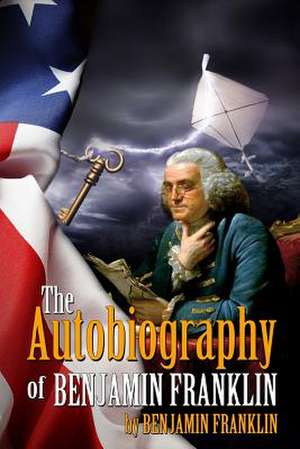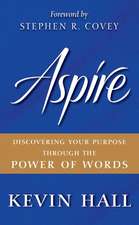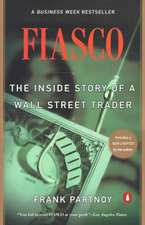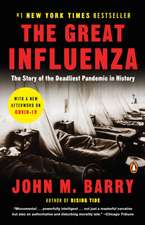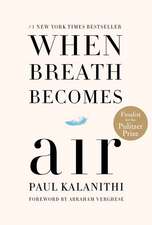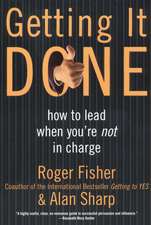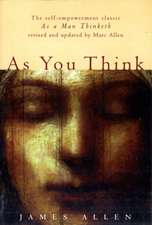The Autobiography of Benjamin Franklin
Autor Benjamin Franklin Ilustrat de Akira Graphicsen Limba Engleză Paperback
--- Benjamin Franklin, The Autobiography of Benjamin Franklin
The Autobiography of Benjamin Franklin is the traditional name for the unfinished record of his own life written by Benjamin Franklin from 1771 to 1790; however, Franklin himself appears to have called the work his Memoirs. Although it had a tortuous publication history after Franklin's death, this work has become one of the most famous and influential examples of an autobiography ever written.
Franklin's account of his life is divided into four parts, reflecting the different periods at which he wrote them. There are actual breaks in the narrative between the first three parts, but Part Three's narrative continues into Part Four without an authorial break (only an editorial one).
Reactions to the work
Franklin's Autobiography has received widespread praise, both for its historical value as a record of an important early American and for its literary style. It is often considered the first American book to be taken seriously by Europeans as literature. William Dean Howells in 1905 asserted that "Franklin's is one of the greatest autobiographies in literature, and towers over other autobiographies as Franklin towered over other men." However, Mark Twain's essay "The Late Benjamin Franklin" (1870) provides a less exalted reaction, albeit somewhat tongue-in-cheek (for example, claiming that his example had "brought affliction to millions of boys since, whose fathers had read Franklin's pernicious biography"). D. H. Lawrence wrote a notable invective against "Middle-sized, sturdy, snuff-coloured Doctor Franklin" in 1923, finding considerable fault with Franklin's attempt at crafting precepts of virtue and at perfecting himself.
Nevertheless, responses to The Autobiography have generally been more positive than Twain's or Lawrence's, with most readers recognizing it as a classic of literature and relating to the narrative voice of the author. In this work, Franklin's persona comes alive and presents a man whose greatness does not keep him from being down-to-earth and approachable, who faces up to mistakes and blunders ("Errata") he has committed in life, and who presents personal success as something within the reach of anyone willing to work hard enough for it.
Preț: 54.79 lei
Nou
Puncte Express: 82
Preț estimativ în valută:
10.48€ • 10.95$ • 8.68£
10.48€ • 10.95$ • 8.68£
Carte disponibilă
Livrare economică 14-28 martie
Preluare comenzi: 021 569.72.76
Specificații
ISBN-13: 9781499295597
ISBN-10: 1499295596
Pagini: 150
Dimensiuni: 152 x 229 x 9 mm
Greutate: 0.23 kg
Editura: CREATESPACE
ISBN-10: 1499295596
Pagini: 150
Dimensiuni: 152 x 229 x 9 mm
Greutate: 0.23 kg
Editura: CREATESPACE
Notă biografică
Benjamin Franklin (1706-1790) was an American writer, printer, politician, postmaster, scientist, and diplomat. Born in Boston, Massachusetts, Franklin found success at a young age as editor and printer of the Pennsylvania Gazette, a prominent Philadelphia newspaper. From 1732 to 1758, Franklin published Poor Richard¿s Almanack, a popular yearly pamphlet that earned Franklin much of his wealth. An influential Philadelphian, Franklin founded the Academy and College of Philadelphia, which would become the University of Pennsylvania, in 1751. In addition, Franklin founded the Library Company of Philadelphia, as well as the city¿s first fire department. As revolutionary sentiment was on the rise in the thirteen colonies, Franklin traveled to London to advocate on behalf of Americans unhappy with British rule, earning a reputation as a skilled diplomat and shrewd negotiator. During the American Revolution, his relationships with French officials would prove essential for the war effort, the success of which depended upon munitions shipments from France. Over the next few decades, he would serve as the first postmaster general of the United States and as governor of Pennsylvania while maintaining his diplomatic duties. A dedicated and innovative scientist, Franklin is credited with important discoveries regarding the nature of electricity, as well as with inventing the lightning rod, bifocals, and the Franklin stove. A slaveowner for many years, Franklin eventually became an abolitionist. Although he failed to raise the issue during the 1787 Constitutional Convention, he led the Pennsylvania Abolitionist Society and wrote essays on the subject of slavery, which he deemed ¿an atrocious debasement of human nature.¿
Recenzii
“People who have read one or more of the many current books about Benjamin Franklin really ought to direct their attention to the man himself, specifically to The Autobiography of Benjamin Franklin. . . . It is the first great American book. . . . An extraordinary document. . . . Plainly yet vividly written, its 18th-century prose still accessible to ordinary readers more than two centuries later. . . . It portrays Colonial and Revolutionary America . . . with an immediacy unmatched in almost any other document. . . . Franklin’s wisdom is for the ages, our own as much as his. So read the Autobiography and—among the many editions available—read Yale’s. Its text is the most reliable (the Franklin papers are at Yale) and its supplementary material is uniformly useful.”—Jonathan Yardley, Washington Post
“The best and most beautiful edition [of the Autobiography].”—J. H. Plumb, New York Review of Books
“Where so many fancy books are long on pictures and short on readable reading matter, this one is superbly the reverse. . . . What counts here is the text: the first thoroughly edited and adequately annotated version of Franklin’s memoirs faithful in every word to Franklin’s holograph. . . . The result is like cleaning away the grime and crackled varnish of generations to discover unsuspected sparkle in an old master.”—Time
“This is one of those rarest of historiographical achievements: a publication of the original text of a historical and literary classic in which the bookmaker’s art and the historian’s best technical editorial skill are combined to produce a work that is both a dependable scholar’s source, a reader’s delight, and a thing of beauty.”—American Historical Review
“The best and most beautiful edition [of the Autobiography].”—J. H. Plumb, New York Review of Books
“Where so many fancy books are long on pictures and short on readable reading matter, this one is superbly the reverse. . . . What counts here is the text: the first thoroughly edited and adequately annotated version of Franklin’s memoirs faithful in every word to Franklin’s holograph. . . . The result is like cleaning away the grime and crackled varnish of generations to discover unsuspected sparkle in an old master.”—Time
“This is one of those rarest of historiographical achievements: a publication of the original text of a historical and literary classic in which the bookmaker’s art and the historian’s best technical editorial skill are combined to produce a work that is both a dependable scholar’s source, a reader’s delight, and a thing of beauty.”—American Historical Review
Descriere
Descriere de la o altă ediție sau format:
The Autobiography of Benjamin Franklin was written by Benjamin Franklin from 1771 to 1790; however, Franklin himself appears to have called the work his Memoirs. Although it had a torturous publication history after Franklin's death, this work has become one of the most famous and influential examples of autobiography ever written.
